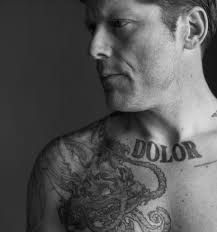Guest Arno Michaelis
What do we do with our regrets? Is it possible to overcome the negative energy, pain, and trauma that has been both inflicted on us and that we have in turn inflicted on others? Is there a way for us to channel our regrets into positive change?
My guest on this week’s YouTube show, Arno Michaelis, co-author of The Gifts of Our Wounds, has a lot to say about this. Arno was once a leader of the white power movement, and a founding member of what became the largest racist skinhead organization in the world. Today, he is a public speaker, author, and activist for peace and justice.
Arno’s regrets led him to devote his life to making the world a better place. Despite the atrocious rhetoric and actions that haunt him to this day, Arno found a way to open himself to the anguish of his past and turn his regrets into positive action.
Regrets Are Toxic
Lingering regrets, the kind we hang onto for years, re-enacting the scenes over and over in our minds, can lead to all-consuming guilt and pain, and ultimately to depression and hopelessness. They can result in chronic stress, negatively affecting hormonal and immune system functioning.
Regrets often take the form of “should-haves” or “could-haves.” I know. I’ve experienced my share.
– I could have kept my mouth shut.
– I should have told her how much she meant to me.
– I could have just left.
On and on. Around and around. Like a bad ear worm.
And yet…
Despite the known negative consequences of regrets in our lives, they seem to be universal cognitive or emotional states we don’t easily let go of. To learn more about why this is so, I did a bit of research. Here’s what I found.
Why Do We Hold onto Regrets?
It turns out there are understandable reasons we may hold onto regrets despite their many known negative effects.
Regrets May Foster Comfortable Avoidance
Catriona Wrottesley, a couple’s psychotherapist at Tavistock Relationships suggests that sometimes regrets can feel like a safe haven. We keep them around and wallow in them to prevent some part of us from moving on into what may look like dangerous territory. Hiding behind our regrets can protect us from the perceived pain and risks of fully throwing ourselves into life.
Regrets May Protect Us from Even Deeper Pain
David Morgan, of the Institute of Psychoanalysis explains that, even though regrets are painful, they may protect us from the deeper pain of remorse. While regrets are an admission of our mistakes, leading us to feel a measure of sorrow for ourselves, we don’t feel deep sadness or remorse for those who were hurt by our behaviors. Staying stuck in our regrets prevents the compassionate ache of remorse from pulling us outside of ourselves and toward authentic mutual healing.
My Take?
Many of us seek to reach a place of no regrets. Instead of tossing them away, might it be wiser to open ourselves to the pain of our regrets, to understand them, and to learn from them? Learn to accept ourselves with all the warts of regretful decisions and behaviors, to recognize that we made those decisions based on the values and the wisdom (or lack thereof) we had at the time, and open up to remorse and greater self-knowledge?
Instead of “tossing away” regrets, my deep wish for each of us is that we might embrace the freedom and courage to say, “I got that one wrong,” express remorse, learn from our failures, and only then move on.

